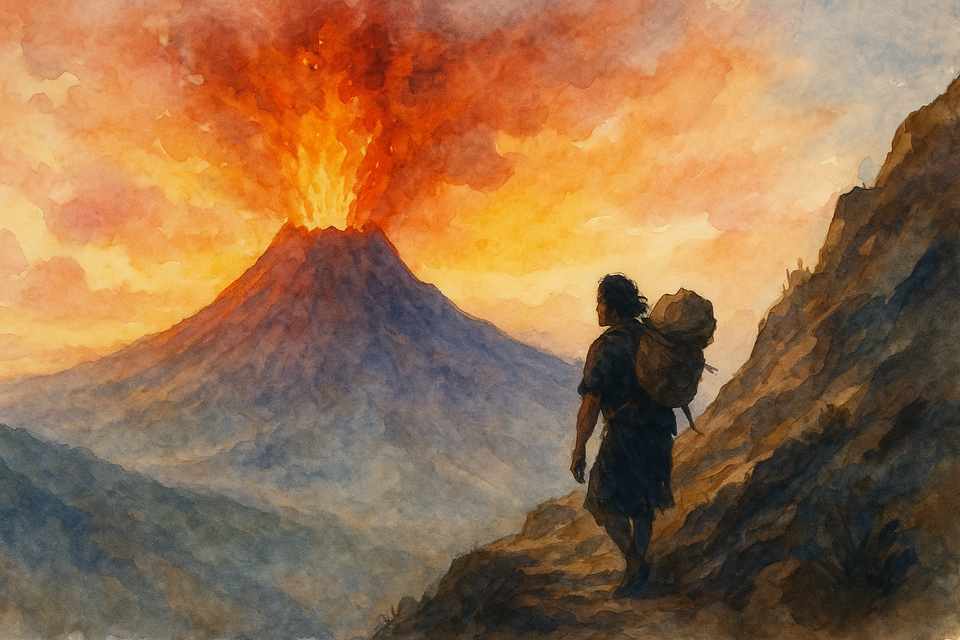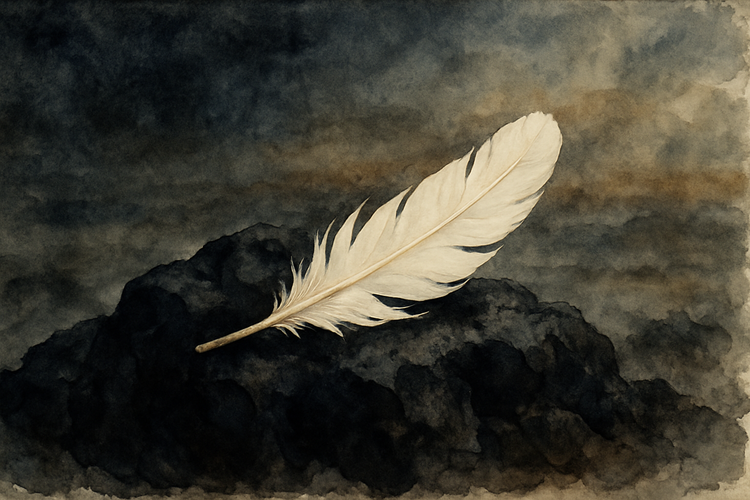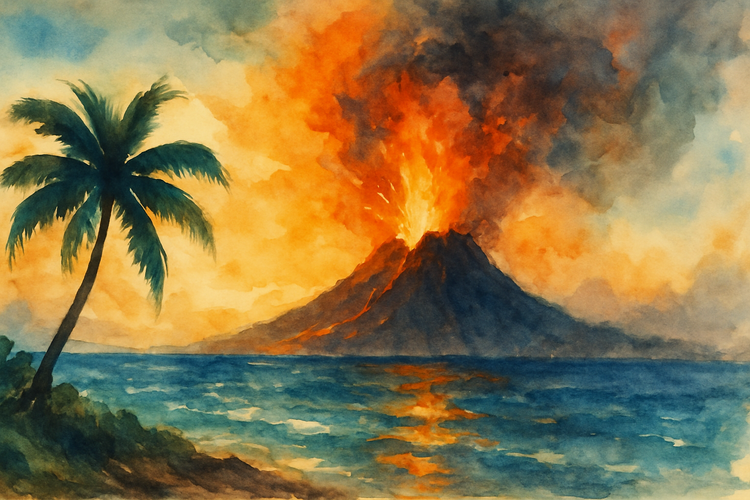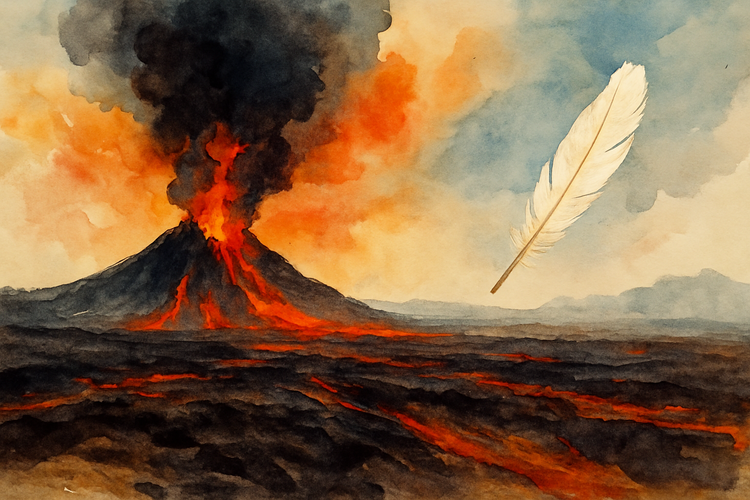Chief of War S1E8 "The Sacred Niu Grove"

Spoiler Warning: This reflection reveals events from the eighth episode of Chief of War.
Aftermath of Massacre
The episode opens on silence thick with smoke and grief. The massacre still clings to the air, its bodies unseen but felt in every shadow, and Ka'iana stands at the edge of erupting violence. His instinct is to lash out, to strike Kamehameha in his anger, as though one blow could answer the weight of so much blood. But Kupuohi steps in, restraining him with both hands and words, a tether between fury and restraint. The image is striking because Ka'iana’s rage is not only his own; it embodies the grief of families shattered, the frustration of a leader watching the world slip into chaos while prophecy is used as justification.
That fury carries him into the council chamber, where grief sharpens into accusation. Ka'iana does not temper his words; he speaks with the rawness of a man who has lost too much, pressing the leaders to acknowledge the cost of Kamehameha’s decisions. Yet his anger finds no welcome. Ka'ahumanu follows him out, the closest thing to an ally he might hope for, but even she cannot give him the comfort he seeks. Her loyalty is with Kamehameha, and she tells him as much, gently but firmly. The scene leaves Ka'iana standing in isolation — opposed by the chiefs, abandoned in his grief, tethered only by Kupuohi’s restraint.
Family Fractures and Desecration
When Ka'iana returns to his household, the fury he carried into the council does not soften. Grief has curdled into restlessness, and he turns it on his own family, speaking of leaving as though escape might free him from the blood already spilled. His kin recoil, unable to steady him. Only when Kupuohi draws him aside does his fire find a place to dim. She does not argue the politics of staying or going — instead, she steadies him with patience, reminding him that his choices ripple outward, whether he admits it or not.
But no counsel can prevent what comes next. Word reaches them of Keōua’s raiding party desecrating the sacred niu grove. In the chaos, Ka'iana’s brother and Kupuohi’s sister are seized. His brother fights back with desperation, striking directly at Keōua, but the rival chief proves merciless, cutting him down. When Kupuohi’s sister stumbles home, she collapses at their feet, offering not a tale but a direction — where the enemy had been, where they must go. Together they follow, only to find what they feared: Ka'iana’s brother lying broken in the grove, a family’s grief laid bare.
Burden on the Mountain
Ka'iana lashes his brother’s bones to his back and climbs the mountain. Each step carries a weight beyond flesh, pressing the loss deeper into him. High above the valleys, he tucks the remains beneath stone, the mountain itself becoming guardian. The act is stark and unadorned — no priest, no chant, only a brother’s duty. In this image, the story draws its contrast with brutal clarity: while Keōua desecrates sacred places and Kahekili howls in madness, Ka'iana shoulders grief as burden, transforming loss into reverence. His climb echoes the endurance we first glimpsed in Changing Tides (S1E2), when survival demanded both strength and patience.
Zealotry and Madness
Elsewhere, Keōua enacts his devotion in fire. At the edge of a lava flow, he casts the priest of the sacred grove into the molten rock, claiming the act as an offering. The sacrifice is not to the God of War honored by others, but to new gods he imagines might be courted through blood. It is zealotry stripped of reason, devotion twisted into spectacle.
Kahekili, meanwhile, spirals within his temple. Drunk or drugged, he declares the bones housed there corrupted, tearing at the shrine as though destruction might purify it. His son rushes to stop him, attacking in desperation. But Kahekili is quicker. The blade strikes, and the son falls wounded. For a breath, the father is jarred from his frenzy, crying out for healers as recognition pierces through the haze. The temple, once sanctuary, now holds the silence of ruin — a king unraveling, a father struck by his own hand.
Counsel and Alliance
Even Kamehameha falters, swelling with pride in his title as the God of War’s chosen and dismissing the muskets as unnecessary. Left to themselves, he and Ka'iana would have torn in opposite directions — one blinded by hubris, the other consumed by vengeance. It is the women who cross those lines. Kupuohi goes to Kamehameha, speaking plainly of the weight he cannot carry alone. Ka'ahumanu turns to Ka'iana, urging him to see that striking at Keōua alone will only deepen the wound. Each woman finds her way not by scolding but by redirecting, shifting the men from ruin toward alliance.
In the wake of that counsel, Ka'iana and Kamehameha begin to train side by side with muskets. The moment is quiet, stripped of grandeur, but it carries the force of a turning tide. Watching from the edges, Kupuohi and Ka'ahumanu exchange a knowing glance. As in The Splintered Paddle (S1E6), where counsel steadied the course of law, here too it is persuasion rather than prophecy that binds the path forward.
Fire in the Mountain
As the two chiefs learn the weight of their new burden, the land itself shudders. The volcano erupts, fire spilling skyward, ash veiling the horizon. For most, it is terror — a reminder that human striving is fragile before the earth’s fury. But for Keōua, it is revelation. He claims the eruption as a sign, proof that the gods answer his madness, that desecration has been blessed. The image closes the hour with a cruel symmetry: one chief mistaking destruction for favor, the others shouldering burden together, guided not by omens but by choice.
Madness and Burden
The Sacred Niu Grove lingers as a study in contrasts. Keōua and Kahekili collapse into zealotry and delirium, mistaking destruction for faith. Kamehameha teeters on arrogance before being steadied. And Ka'iana, heavy with grief, learns to bear his brother’s bones as burden rather than squander himself on vengeance. Across the episode, prophecy does not guide — it corrodes. The gods do not lift their chosen; they drive men toward frenzy. What steadies the way forward are not visions, but counsel and endurance: women steering chiefs, families binding grief into duty, allies insisting on strength over pride. Against eruption and zealotry, the story leaves us with this truth: what will endure is not madness dressed as faith, but burden carried together.



Comments ()